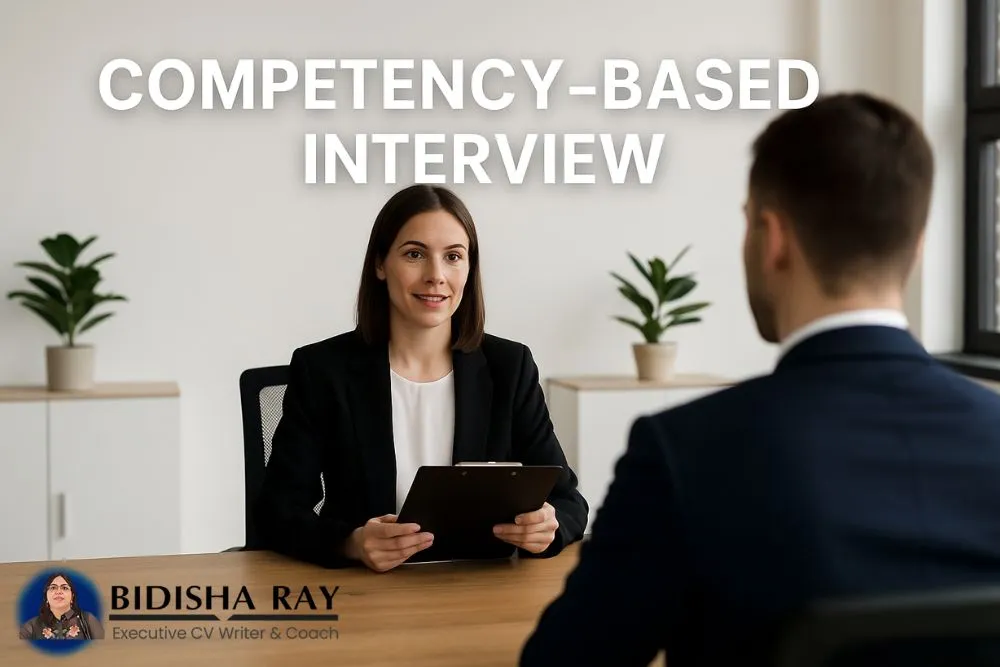What is a competency based interview is one of the most common questions asked by job seekers, especially those preparing for roles in the United Kingdom. Competency based interviews are becoming increasingly popular among UK employers as they focus on real work behaviours, not just theory. If you are preparing for a job interview in 2025, understanding this interview format can greatly increase your chances of getting hired.
A competency based interview is a structured interview style that evaluates whether you have the skills and behaviours needed for the job. Instead of asking hypothetical or generic questions, interviewers ask about real situations you experienced in the past and how you handled them.
This article will explain what competency based interviews are, why they matter in the UK hiring process, how to answer using the STAR method, and provide real UK-based competency interview questions to help you prepare confidently.
Also Read: How to Work Out Pro Rata Salary
What is a Competency Based Interview?
A competency based interview is a style of interview where the interviewer asks you to provide real examples of how you handled certain situations in the past. These situations relate to key skills (also called competencies) such as teamwork, communication, leadership, and problem solving.
Instead of questions like “Tell me about yourself” or “Why should we hire you?”, you will be asked:
- Describe a time when you worked under pressure.
- Give an example of when you solved a complex problem.
The idea is simple: past behaviour predicts future performance.
In the UK, this interview format is widely used by companies, public sector organisations, and government departments including NHS, Civil Service, and major employers like Barclays, Tesco, and BT.
Why UK Employers Use Competency Based Interviews
Competency based interviews are used mainly because they are fair, objective, and allow recruiters to compare candidates more accurately. UK employers prefer this format for several reasons:
- It reduces bias and focuses on behaviour rather than personal background.
- It helps measure how well candidates can handle real job challenges.
- It ensures interviews are consistent and structured.
For example, a Civil Service hiring manager might want to see evidence of competencies like “Delivering at Pace” or “Working Together”. Instead of guessing how you might behave, they ask for proof from your past experience.
UK employers use this interview style especially when recruiting for:
- Graduate jobs
- Apprenticeships and internships
- Public sector roles (NHS, local councils, Civil Service)
- Customer service, HR, finance, and managerial positions
Difference Between Competency Based Interviews and Traditional Interviews
Traditional interviews focus on personality, opinions, and general questions.
Example traditional question:
Why do you want to work here?
Competency based interviews focus on real experience and behaviour.
Example competency question:
Tell me about a time you worked with a difficult colleague. What did you do?
The main differences are:
| Traditional Interview | Competency Based Interview |
| Focuses on opinions and future intentions | Focuses on real past behaviour and results |
| Conversation-style questions | Structured, evidence-based questions |
| Subjective evaluation | Objective scoring against competencies |
| More common in small businesses | Used by large companies, UK public sector |
Understanding this difference helps you prepare the right examples before the interview.
Common Competencies UK Employers Look For
Competencies vary depending on the type of job, but the most common ones used in the UK include:
Communication Skills
Employers want to see if you can speak clearly, listen well, and adapt communication for different audiences.
Example:
Explain a time when you had to present complex information to someone without technical knowledge.
Teamwork and Collaboration
Companies want people who can work effectively with others.
Example:
Describe a situation where you supported your team during a busy period.
Problem Solving and Decision Making
You must show how you analyse problems and make decisions.
Example:
Tell me about a time you solved a difficult problem at work.
Leadership and Taking Initiative
Even junior roles require leadership qualities, such as motivating others or taking responsibility.
Example:
Explain a time you took the lead on a project or task.
Time Management and Prioritisation
UK employers value candidates who can manage workload efficiently.
Example:
Tell me about a time you had to prioritise multiple tasks.
Adaptability and Resilience
Hiring managers want proof you can handle pressure and unexpected changes.
Example:
Give an example of when you had to adapt to a significant change quickly.
You do not need to memorise competencies but identify examples from your own experience that demonstrate them.
How to Answer Competency Interview Questions Using the STAR Method
The most effective way to answer competency based interview questions is by using the STAR method, which stands for:
- Situation – What was happening?
- Task – What was your responsibility?
- Action – What steps did you take?
- Result – What was the outcome?
Employers in the UK specifically expect STAR format answers during competency interviews.
STAR Method Example (UK)
Competency: Problem Solving
Question: Describe a time when you solved a problem at work.
Situation: I worked as a customer service assistant in a retail store during Christmas season.
Task: My task was to handle long queues while maintaining customer satisfaction.
Action: I created a quick triage system, directing quick purchases to a separate till and helped colleagues process transactions more efficiently.
Result: Queue time reduced by 40 percent, and our store received positive customer feedback that week.
Always keep your STAR answers concise and focus more on Action and Result.
Examples of Competency Based Interview Questions (UK Job Market Relevant)
Here are some real competency based interview questions that UK employers commonly ask:
Communication:
- Tell me about a time when you had to explain something complicated to someone.
Teamwork:
- Describe a situation where you supported a colleague who was struggling.
Leadership:
- Give an example of when you motivated others to achieve a goal.
Problem Solving:
- Explain a time when you identified a problem no one else noticed.
Customer Service (common for retail and hospitality in the UK):
- Tell me about a time when you handled a difficult customer.
Working Under Pressure (NHS and emergency roles often use this):
- Describe a situation when you had to work under tight deadlines.
Write down 4–6 strong STAR stories before the interview. You can reuse the same examples for multiple competencies.
Tips to Prepare Effectively for Competency Based Interviews
Preparation is key. Here are proven tips:
- Review the job description carefully.
Look for competencies mentioned in the posting, especially for UK public sector roles. - Prepare STAR examples for each competency.
Make sure each example includes measurable results. - Practice speaking your answers aloud.
This helps build confidence and improves clarity. - Use keywords from the job description.
This shows alignment between your skills and what the employer wants. - Stay specific, not general.
Competency interviews reward detail. - Bring notes if the interview is online.
Many UK virtual/remote interviews allow notes for reference.
Mistakes Candidates Should Avoid
Many candidates fail competency interviews because of these avoidable mistakes:
- Telling long, unfocused stories
- Focusing on the task, not the result
- Saying “we” instead of “I” when describing your actions
- Giving hypothetical answers instead of real examples
- Not preparing measurable achievements
Your answers should clearly show your personal contribution, not just what the team did.
Conclusion
Competency based interviews are one of the most reliable and widely used interview formats in the UK. They help employers evaluate real behaviour, not just what candidates say they can do. By understanding the structure of these interviews and using the STAR method, you can confidently demonstrate your skills and increase your chances of securing a job offer.
Remember: practice your STAR stories, focus on results, and be clear about your contribution. With the right preparation, competency based interviews become much easier and you will stand out from other candidates.
FAQs
1. Are competency based interviews common in the UK?
Yes, they are very common, especially in the Civil Service, NHS, finance, HR, and graduate recruitment.
2. Can I use personal experiences if I do not have much work experience?
Yes. Examples from school, internships, volunteering, or university projects are acceptable.
3. How long should a STAR answer be?
Ideally, 1 to 2 minutes. Focus more on the Action and Result.
4. What if I cannot think of an example during the interview?
Pause, think, and select the closest example you can recall. Employers value clarity, not speed.
5. Can I use the same STAR example for multiple competencies?
Yes. One strong example can demonstrate multiple competencies like teamwork, communication, and problem solving.



